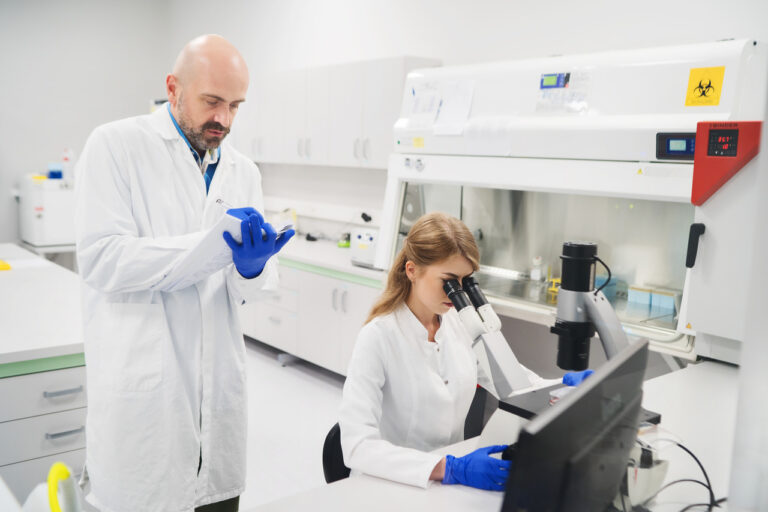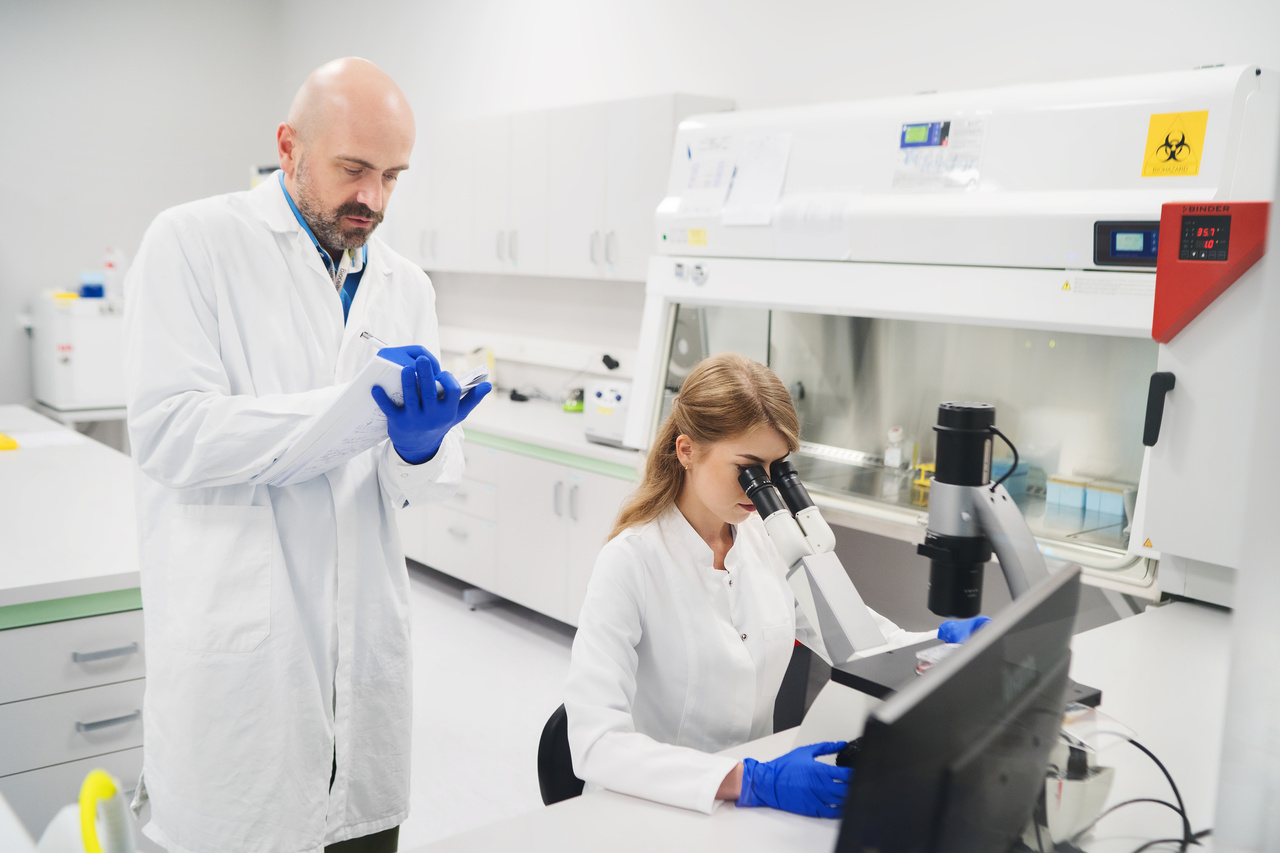Na 3 czerwca Bioceltix SA zwołał Nadzwyczajne Walne Zgromadzenie Akcjonariuszy, na którym odbędzie się głosowanie m.in. nad projektem uchwały w sprawie podwyższenia kapitału zakładowego poprzez emisję nowych akcji. Celem jest sfinansowanie budowy nowej wytwórni komórek macierzystych, która umożliwić ma wielkoskalową produkcję leków przeznaczonych do sprzedaży międzynarodowej.
Pozyskane przez spółkę środki pozwolą w przyszłości na przemysłową produkcję flagowych projektów Bioceltix: dwóch przeznaczonych dla psów – na osteoartrozę oraz na atopowe zapalenie skóry, i trzeciego przeznaczonego dla koni cierpiących z powodu zmian zwyrodnieniowych stawów. Produkcja leków opartych na technologii wykorzystującej mezenchymalne komórki macierzyste odbywa się już w obecnej, średnioskalowej wytwórni działającej w standardzie farmaceutycznym, zapewniając ich wytwarzanie na użytek R&D, badań klinicznych oraz przyszłej sprzedaży pilotażowej. Nowy zakład pozwoli docelowo zwiększyć moce produkcyjne kilkadziesiąt razy.
“Nasza obecna wytwórnia powinna dostarczyć do 30 tys. dawek terapeutycznych produktu na osteoartrozę rocznie. To wystarczający wolumen do przeprowadzenia pilotażowej sprzedaży na wybranych rynkach, po dopuszczeniu pierwszego produktu do obrotu. Musimy natomiast przygotować się do szybkiego zwiększenia produkcji, a do tego potrzebujemy nowej wytwórni. Nasza strategia zakładająca sprzedaż produktów za pośrednictwem partnera branżowego będzie wymagała dużych wolumenów.”
– tłumaczy dr inż. Paweł Wielgus, członek zarządu firmy.
Spółka szacuje, że uzyskanie przez nową wytwórnię zdolności do wielkoskalowej produkcji farmaceutycznej pochłonie w pierwszym etapie ok. 9 mln EUR. Wielomilionowa inwestycja ma zostać sfinansowana ze środków pozyskanych z emisji akcji. Spółka zakłada, że „przedmiotem oferty będą akcje obejmujące do 20% akcji spółki dopuszczonych do obrotu na GPW na datę przeprowadzenia oferty, która zostanie skierowana do inwestorów z wyłączeniem prawa poboru, ale z zachowaniem prawa pierwszeństwa do objęcia akcji przez dotychczasowych akcjonariuszy spółki spełniających określone kryteria oraz na warunkach określonych w uchwale emisyjnej”. Bioceltix planuje przeprowadzenie oferty w czerwcu br. Pozostałe jej założenia w niedługim czasie mają zostać przedstawione inwestorom i akcjonariuszom. Spółka powierzyła pośrednictwo w przygotowaniu i przeprowadzeniu oferty mBank S.A. oraz Trigon Dom Maklerski S.A. Doradcą Investor Relations i finansowym spółki jest cc group sp. z o.o.
Strategiczny projekt
Nowy zakład powstanie we Wrocławiu, a jego uruchomienie powinno nastąpić w drugiej połowie 2026 r. Wytwórnia zlokalizowana zostanie na powierzchni około 1200 m2.
“Naszym celem jest jak najszybsze uruchomienie certyfikowanej produkcji w nowym zakładzie. Musimy zadbać o wszystkie istotne elementy, tak aby objąć cały proces produkcyjny. W pierwszym pełnym roku funkcjonowania wytwórnia powinna osiągnąć zdolność produkcyjną na poziomie co najmniej 100 tys. dawek terapeutycznych produktu na osteoartrozę. Inwestycja jest tak pomyślana, żeby dalsze zwiększenie produkcji osiągnąć poprzez proste dokładanie kolejnych egzemplarzy urządzeń i stopniowe uruchamianie kolejnych modułów inkubacyjnych. Będziemy się starali, żeby te działania były już finansowane z przychodów, długu lub leasingu. Widzimy też możliwość sfinansowania części inwestycji ze środków publicznych. Dołożymy wszelkich starań, żeby to się wydarzyło.” – wyjaśnia Paweł Wielgus.
Spółka pracuje nad koncepcją nowego zakładu wspólnie z partnerem technologicznym wyspecjalizowanym w projektowaniu infrastruktury o podwyższonej klasie czystości. Zakład ma obejmować kompletny proces wytwarzania produktów leczniczych, od pobierania materiału źródłowego od dawców poprzez namnażanie i pakowanie komórek macierzystych, aż do magazynowania produktów, wraz z kontrolą jakości, zapleczem analitycznym oraz badawczo-rozwojowym.
Jak podkreśla zarząd Bioceltix, budowa wytwórni jest niezbędna dla zrealizowania celów biznesowych spółki i uzyskania trwałej przewagi konkurencyjnej.
“Wydaje nam się, że obecnie żaden podmiot, i to w ujęciu globalnym, nie jest w stanie wyprodukować w celach terapeutycznych takiej ilości zwierzęcych komórek macierzystych, jaką planujemy pozyskać z nowej wytwórni. Jeśli wszystko pójdzie zgodnie z planem, nasz zakład produkcyjny będzie największą tego typu wytwórnią komórek macierzystych na świecie. Nakłady na jej uruchomienie są oczywiście spore, ale patrząc na potencjał biznesowy, który się za nią kryje, nie mamy żadnych wątpliwości co do tej inwestycji.” – dodaje Paweł Wielgus, członek zarządu Bioceltix.
“Czas dla biotechnologii weterynaryjnej jest bardzo dobry. Wszystko wskazuje na to, że to właśnie lek biologiczny będzie pierwszym w historii weterynarii produktem, który osiągnie roczną sprzedaż przekraczającą 1 miliard dolarów. Do tego cały czas ewoluuje podejście opiekunów do zwierząt, bo coraz częściej traktujemy je jak pełnoprawnych członków rodziny. Chcemy maksymalnie wykorzystać te trendy, a nasze plany giełdowe idą w parze z zaawansowaniem projektów.”
– podsumowuje Łukasz Bzdzion, prezes zarządu Bioceltix.
Wraz z emisją akcji szykują się dodatkowe zmiany w akcjonariacie spółki. Dołączenie do transakcji i sprzedaż pakietu swoich akcji rozważa fundusz Infini ASI, który historycznie dołączył do Bioceltix jako pierwszy inwestor finansowy.
“Przede wszystkim jesteśmy wdzięczni Infini za wieloletnie wsparcie, dzięki któremu mogliśmy realizować kolejne cele i budować wartość dodaną dla akcjonariuszy. Infini jest z nami niemal od początku, towarzysząc spółce na drodze od startupu do rynku regulowanego. Dla mnie to jest jak najbardziej zrozumiałe, że każdy fundusz ma swój horyzont inwestycyjny. Cieszę się, że zarząd Infini podejmuje tak ważne decyzje w sposób korespondujący z planami rozwoju spółki. Myślę, że to jest również dobra wiadomość dla pozostałych akcjonariuszy.” – podkreśla Paweł Wielgus.
Komercjalizacja na horyzoncie
Spółka zapewnia, że utrzymuje dobre tempo prac we wszystkich rozwijanych dotąd liniach przyszłych produktów leczniczych. W przypadku najbardziej zaawansowanego projektu dotyczącego osteoartrozy u psów, Bioceltix zamierza złożyć dokumentację rejestracyjną do Europejskiej Agencji Leków w maju br. To oznacza rozpoczęcie oficjalnych rozmów z regulatorem rynku farmaceutycznego, które w konsekwencji doprowadzić mają do dopuszczenia produktu do obrotu w przyszłym roku. Wówczas BCX-CM-J byłby pierwszym na świecie weterynaryjnym produktem leczniczym zawierającym psie komórki macierzyste. Z kolei kandydat na lek na AZS u psów, po sukcesie badania pilotażowego, jest w fazie właściwego, wieloośrodkowego badania klinicznego. Rozwój projektu BCX-CM-AD zostanie wsparty dotacją w kwocie blisko 11 mln zł w ramach programu Fundusze Europejskie dla Nowoczesnej Gospodarki (FENG). Spółka osiągnęła też ważny etap w projekcie BCX-EM – w badaniu klinicznym zakończono rekrutację 117 koni ze zdiagnozowanymi objawami zmian zwyrodnieniowych stawów. Zdaniem zarządu, szybka i sprawna rekrutacja koni wskazuje na duże rynkowe zapotrzebowanie w tym obszarze. Równolegle do rozwijanych trzech flagowych projektów, Bioceltix podjął prace nad nowym produktem przeznaczonym do leczenia AZS u psów. Będzie to produkt bezkomórkowy wykorzystujący jako aktywny składnik farmaceutyczny białka i inne substancje produkowane i wydzielane na zewnątrz przez komórki macierzyste, znajdujące się w medium pohodowlanym. Tzw. sekretom w obecnym procesie technologicznym jest odpadem, ale twórcy Bioceltix dostrzegają w nim duży potencjał terapeutyczny i komercyjny.





